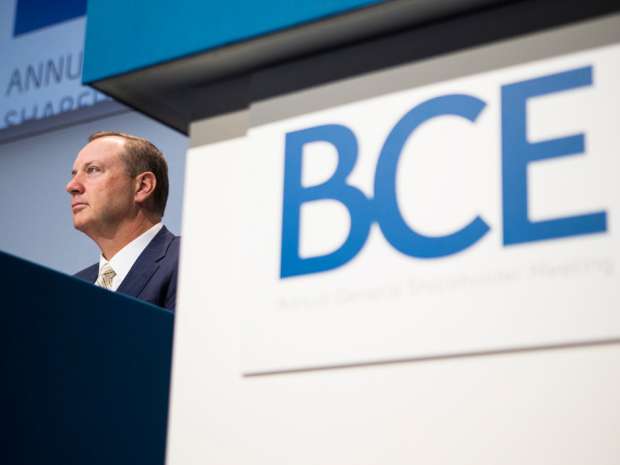Connie Mack recently interviewed David Darst, chief investment strategist for Morgan Stanley Smith Barney, and Robert Kessler, head of Kessler Investment Advisors, which runs portfolios for institutional investors and governments around the world. This is a MUST view/read interview. The complete transcript follows.
CM: David Darst is known as a master of the art of asset allocation. He is the chief investment strategist for Morgan Stanley Smith Barney. David is also a teacher and prolific author, and his latest book is The Little Book that Saves Your Assets
. And it’s great to have you both here. Thanks so much for joining us on WealthTrack.
Robert Kessler, U.S. Treasuries, you make your living in investing and managing portfolios of U.S. Treasuries, and as long as I’ve known you, they have been denigrated by most of the competition except in this most recent period when everyone rushed to Treasuries, but now the naysayers are back again. So why are they wrong again about Treasuries?ROBERT KESSLER: It’s not a question of being wrong or right. A Treasury is really a benchmark to almost every other asset class. So as a benchmark, you can’t be wrong or right about a benchmark. It’s just simply matter of spread between what other asset classes are selling at. So in the Treasury market, we’re lucky enough to be able to have a choice of overnight Treasuries, which is cash, or longer-term Treasuries. And longer term Treasuries are really based on whether you believe inflation is going to be an issue or whether disinflation will be an issue.
So right now we’re in what we call a credit crisis. We’re in a credit recession. And during credit periods of time, you don’t want to own risk assets, and if you don’t want to own risk assets, you want to go to something that has very little risk, which is a Treasury. Now the question becomes: do you own Treasuries as bills overnight or do you really believe that rates are going to come down because there’s very little inflation in the world? So since we believe rates will come down because there is very little inflation, then Treasuries become very attractive.CONSUELO MACK: All right. So let me stop you there and we’re going to follow up on that in a couple of minutes. David Darst, as a global strategist first and as an asset allocator second, how do you view this?
DAVID DARST: It’s a great point because really, inflation is a monetary phenomenon. We have a big war going on between this monetary phenomenon called inflation potential down the road.
CONSUELO MACK: Right.
DAVID DARST: And deflation is a credit phenomenon. And right now credit is contracting. The latest month figure for December showed it contracted, consumer credit, Consuelo, by $2.5 billion. That’s 11 months in a row the government has been keeping these numbers since 1943. It’s never contracted for 11 months in a row. So right now we have this epic, titanic struggle between the deflation phenomenon, credit contracting and the inflation phenomenon, which is the government attempting to pump up the money supply, add liquidity to the system, which people, makes them worry about inflation down the road. So we feel that maybe Treasury bonds, Treasury securities, you can have them in the portfolio right now, you need to have a little offense as well as a little defense. Treasury securities are a defensive investment in our opinion. Last two years ago they were up 20%. They were up 20% in 2008 when the stock market went down 37%. Last year, ten-year Treasuries lost 9.9% on a total return basis.
I’m very receptive. For a person basically to say stay away from Treasuries means they think interest rates are going to rise. That means the consumer is going to come back. That means that credit is going to stop contracting and we’re going to worry about inflation. But over the next 12 months, I’m not so sure those things are going to be an issue, Consuelo.CONSUELO MACK: So short term at any rate, next 12 months, Treasuries are probably a good place to be defensive.
DAVID DARST: I think you can have some in the portfolio. We are underweight. We are underweight. Normal is 16%. We’re 7%. That’s our largest single underweight. We are very underweight because we’re worried about the health of sovereign credit finance about the condition of the U.S., the U.K., the European community and so forth, the condition of these finances. So much money has been issued.
CONSUELO MACK: Okay. How do you answer that argument because, in fact, as you know, that most people who are looking at U.S. Treasuries are saying, we’ve got a record deficit; we have to finance that record deficit. If we are basically having to sell a lot of Treasury bonds, that is going to mean that the value of the dollar of our securities is going to go down. And then, in fact, that means that it’s going to be inflationary for the U.S. So how do you respond to that argument? Why aren’t you worried about the size of the deficit and what we have to finance being inflationary?
ROBERT KESSLER: Let me answer two questions. The first question is this concept of the deficit. There is this constant talk of deficits lead to inflation. We don’t really have any indication that that’s true. In the Depression in the United States, we had huge deficits, of course, and we had no inflation. We had deflation. Japan has gone through 20 years now of deficits that are far, far higher than ours, and they have deflation. So we don’t know anything about the inflation side of it. What’s really important is that if people can’t raise prices and there’s an awful lot of excess capacity in the world and wages are going down and unemployment keeps staying kind of sticky at these very, very high levels, it’s very difficult to have inflation.
And so there is no inflation. That’s not our issue. The real issue is-- television was interesting today because not only are we dealing with Greece, Greece is very interesting because we’re bailing out Greece and bailing out perhaps Portugal next, but we’re probably going to bail out New Jersey after that. Because New Jersey just announced today that they’re running into a huge deficit, too.CONSUELO MACK: As are a lot of states.
ROBERT KESSLER: As are a lot of states. So we have states having problems, lowering wages, firing people; very, very difficult to raise prices and consequently, very difficult to have inflation.
CONSUELO MACK: All right. So you think we’re deflationary. You think the credit contraction you think which is extraordinary is actually, we’re in the beginning stages of it. You’re not thinking a year down the road, you’re thinking for inflation, you’re thinking, what three, four, five...
ROBERT KESSLER: It sounds like I’m being very pessimistic.
CONSUELO MACK: You’re a bond person.
ROBERT KESSLER: No, no but I don’t want to be pessimistic. We just got back from the Middle East. I have to tell you, not only is everything for rent in the Middle East, not only are buildings completely unoccupied, but banks, since we deal with banks, banks right now are doing one trade. They’re doing what we call a carry trade, meaning they’re buying their sovereign debt, either U.S. sovereign debt or their sovereign debt short term and they’re carrying it at very low cost.
CONSUELO MACK: Because they can borrow it at very low cost.
ROBERT KESSLER: Because they can borrow at very low cost, as is JP Morgan in the United States and as is Morgan Stanley and everyone else. So the fact of the matter is when people say we’re in a bear market in Treasuries, it’s ridiculous. Last year, even though David is correct, the ten-year Treasury was down 9%. The fact of the matter is we made more money last year in two-year Treasuries than any year I can think of because everyone was carrying a two-year Treasury at zero and getting a point. Now, in bank talk...
CONSUELO MACK: So they were borrowing at lower than 2% and then they were buying the two years... So they made?
ROBERT KESSLER: They do it at a very high leverage level because they don’t need to do very much with a capital question. So the fact of the matter is you have this bull market going on and yet everyone is saying, anything but Treasuries. Tell that to JP Morgan.
CONSUELO MACK: Right. So David, not to completely focus on Treasuries, but as far as asset allocation, you said that your biggest underweight is U.S. Treasuries right now.
DAVID DARST: It’s sovereign credit, Consuelo.
CONSUELO MACK: Across the board.
DAVID DARST: It would include U.K., it would include Canada, it would include Europe.
CONSUELO MACK: And the reason for that is what?
DAVID DARST: Well, the sovereign... we believe there’s so much issuance of sovereign debt; we do believe that the balance sheet of the Fed has ballooned from $900 billion to $2.2 trillion. We do see the deficits as being quite large on out into the future. And we do believe that these trillion dollar and trillion and a half dollar deficits are going to have to be bought and to entice people, which will cause higher interest rates. So that’s why Morgan Stanley’s economists have a big out-of-consensus call, which Robert is very familiar with. And by the way, the word Robert means bright fame. His name means bright fame. Now Robert is familiar with this- Morgan Stanley is expecting 5.5%. And every conversation I get into, I have to argue we think that inflation fears will be higher towards the end of 2011. We see all this slack. But there’s concern. Supply, which you mentioned, that is the excess issuance by the Treasury, and also the Fed, and I know there’s a lot of disagreement over this, we expect them to begin their exit strategy later this year, second half of this year.
CONSUELO MACK: And exit strategy could mean raising the federal funds rate?
DAVID DARST: Higher short-term interest rates, and that means we think higher long-term interest rates. We take a little bit of respectful issue with Robert Kessler’s brilliance over here. But we believe the essence of our underweight versus sovereign debt is because of enormous supply and people’s concern. Inflation is the biggest... The biggest inflations of all times have all come from fighting deflation. In the 1946 to 1949 period in Germany, in communist China, in the 1920s and 1923 period of Weimar Germany, the biggest inflations have all come from fighting deflation.
CONSUELO MACK: So what’s interesting is the common ground is here. Right now we are fighting deflation, which is actually positive at least for the next 12 months, possibly for...
DAVID DARST: Steroids, financial steroids. Mark McGuire has admitted to it and the Fed is taking financial steroids.
ROBERT KESSLER: Let me be a little contrary for a second.
CONSUELO MACK: For a second?
ROBERT KESSLER: All right, for 30 seconds. The fact of the matter is we talk about this exit strategy all the time about the Fed. I’m into the entrance strategy. I am trying to figure out how we’re going to help out 8.5 million people who don’t have jobs. It’s probably closer to 17 million because that’s really a more correct figure.
CONSUELO MACK: The ones who have been discouraged and not looking for jobs anymore.
ROBERT KESSLER: Why we’re talking about exit strategies is very, very disconcerting to me.
CONSUELO MACK: Because the Fed is actually. Bernanke is talking about it, right.
ROBERT KESSLER: What we’re talking about again is Wall Street and the banking industry. When you get to, excuse me, the middle of the United States, at least where I live.
DAVID DARST: Right, you live in Denver.
ROBERT KESSLER: In Denver. People don’t have a clue to what JP Morgan is doing or Morgan Stanley is doing. What they’re looking for is their job, and when someone says, excuse me, I think it will be a good idea to raise interest rates, they can’t even borrow money; not only can’t they borrow money, no one will lend them any money. So they’re really...
CONSUELO MACK: Like the credit contraction you were talking about.
ROBERT KESSLER: So the issue is why are we talking about exiting the strategy?
DAVID DARST: The reason we’re talking about exit strategy is psychological. It’s the use of Shakespearean language and words to try to divert people from worrying about the debasement of the currency, internally and externally. And that’s why he’s saying it. And I agree with you. I don’t see rates jacking way up very quickly. This is going to be gradual, but we went from $900 billion Fed balance sheet to $2.2 trillion. And it is very, very important.
Sarkozy, during the last four weeks-- opening speech at the World Economic Forum said that in 2011 France is going to be head of the G7 and the G20 and he says his number-one agenda item is to create a new world monetary system, a new system without the United States dollar as the primary reserve currency. The reason they talk about exit strategy, Robert, is to keep people from going to this new currency.CONSUELO MACK: So how concerned are you about the fact that the dollar could be replaced as the reserve currency?
ROBERT KESSLER: First of all, for a second I’m going to represent Main Street as opposed to Wall Street, and Main Street doesn’t have a clue to what we’re talking about.
CONSUELO MACK: Right.
ROBERT KESSLER: Believe me. This all gets very, very complicated to talk about.
CONSUELO MACK: And our viewers are investors.
ROBERT KESSLER: They’re investors, so my answer to all of this is the United States will continue to be the reserve currency. There’s nothing wrong with the dollar. Everyone will put money into the dollar, as we’re doing today. Today is a very, very good example. We had a 30-year auction today. What was exciting about it, even though it didn’t go over very big as an auction, didn’t go well, but what was exciting about it is 23% of the auction was bought by Americans. What we call direct investors.
CONSUELO MACK: We’ve seen a trend here where the direct investors, Americans are buying more and more of their Treasury securities.
ROBERT KESSLER: And so when you look at the American dollar, as you can look at the Japanese yen- the reason the yen has stayed strong for so long is because the Japanese support their own country.
DAVID DARST: Internal savings, financing.
ROBERT KESSLER: And in the United States, we are beginning to do the same thing. And so even though we have a deficit, if we’re willing to pay for it, then frankly there’s nothing so terrible about the deficit.
DAVID DARST: Your legion of viewers in the aggregate have 25% stocks, 25% their home and 7% bonds. That’s why, as you’ve pointed out on the show, Consuelo, over the nine months from March through December, they, we all put $315 billion net into bond funds and ETFs, $35 billion into non-U.S. stocks and minus $24 billion into U.S. stocks. So there has been this trend. 1982, the average baby boomer, the median age was 25 years old. Today it’s the reverse of the digits- 52 years old. People have been killed by the dot com meltdown, the housing price meltdown and the financial stock meltdown and that want to set aside some money. So your point is an excellent point, Robert. They want to put this money and maybe some of the buyers will be U.S. households.
ROBERT KESSLER: Let me add one more statistic.
CONSUELO MACK: Very quickly because we have to get to the One Investment.
ROBERT KESSLER: The statistic being, that if Americans begin to invest in Treasuries the way they have in the past, then there would be no deficit. There would be simply no deficit.
DAVID DARST: We’re sitting on $8 trillion of cash right now. And they need only $1.5 trillion, but we need higher rates, Robert, to entice us to take it out of the cookie jar and the mattress and put it in Treasuries.
CONSUELO MACK: So one quick question for you, David Darst, and this is put your asset allocation hat on again. What are you overweighting, in a minute or less?
DAVID DARST: We’re overweighting corporate credit to summarize quickly. That would be high yield bonds, and high grade bonds.
CONSUELO MACK: Because of the yield.
DAVID DARST: The yield is more attractive. We are overweight in real estate investment trust, which have a nice yield to them.
CONSUELO MACK: Right.
DAVID DARST: We’re overweight in emerging market stocks and Canadian stocks, Australian stocks, and in small cap stocks. They have basically taken a little gas in the first part of this year. We think that’s a pause, a healthy, needed correction that we will believe as the economies grow around the world- we just jacked up our China forecast to above 10% for this year- and we think probably world growth will surprise to the up side. Maybe that’s why yields will surprise to the up side, too. Interest rates.
CONSUELO MACK: Very interesting. And so let’s go to the One Investment for our investor viewers out there, and Robert Kessler, guess what you’re recommending.
ROBERT KESSLER: A quick comment.
CONSUELO MACK: Yes.
ROBERT KESSLER: A quick comment. I am so weary of people who wear white suits and recommend emerging markets. Now, David’s not.
DAVID DARST: White suits?
ROBERT KESSLER: White suits.
DAVID DARST: Tom Wolf.
ROBERT KESSLER: Right.
CONSUELO MACK: I don’t understand that.
ROBERT KESSLER: Consequently, what I’m saying is I think you want to be in everything that is risk-averse. And therefore I would suggest that a Treasury, whether it’s overnight money or it’s ten or a 30-year Treasury, I think the ten year will probably outperform everything this year, and that’s a way-out kind of a call, but I do think that rates are going to substantially come down, and they do usually the second or third year after a recession, and since we’re only a year into this, we have a long ways to go, and I think you’ll see the ten-year Treasury probably back at 2% range or lower. And that’s a big move.
CONSUELO MACK: Wow. And David Darst, you’re thinking defensive action, too.
DAVID DARST: I am, Consuelo. Procter & Gamble (PG), which I’ve recommended on the show before- they have 23 products with over $1 billion in annual sales, and they have 20 products in addition with over $500 million in annual sales. They just changed leaders. Robert McDonald takes over from A.G. Lafley. McDonald has been with them for 29 years. He sold Folgers Coffee. He’s selling off the pharma area to focus on personal care, on household products and human well-being, okay. We see three billion people every day out of six billion in the world that are touched by a Procter & Gamble product.
CONSUELO MACK: Wow.
DAVID DARST: He wants it to go up to four billion. Only 30% of their revenues are outside the U.S. and Europe. Stock sales are 14 times last year’s earnings. It yields 2.9%. They’ve not been buying stocks in a year and a half. They’ve just begun to buy stocks, and the last thing is it was only up 1% last year with its lag to market. It went down less than the market. It went down 14 in ‘08 when it went 37 down, up 1% last year. We think this is a company that’s been a defensive stock about to go on the offense.
CONSUELO MACK: So we have a diversified portfolio right here between the two of you. Robert Kessler from Kessler Investment Advisors, thank you so much for coming in from Denver and from New York, it’s great to have you regardless, David Darst from Morgan Stanley Smith Barney, thanks so much for joining us.
At the conclusion of every WealthTrack, we tried to leave you with one action to take to build and protect your wealth over the long-term, as well. This week we’re revisiting a retirement income theme that we and many of our guests have emphasized over the years. This week’s Action Point is: lock in some retirement income for life.
How do you do that? The Obama administration recently came out in support of annuities as a tool to deliver a form of “guaranteed lifetime income.” Specifically, President Obama has called for a change in federal rules to allow adding annuities to 401(k) retirement plans.
Until that becomes a reality, one way to assure a stable flow of income that you can count on for life is to buy the simplest, plain vanilla version, an immediate fixed annuity, also known as a single premium immediate annuity. You turn over a one-time payment to an insurance company, and it in turn will provide you with a predictable and guaranteed monthly income as long as you live. To make sure it’s there, that it is as long as you live, only work with life insurance companies that have the highest credit ratings, and don’t put all your eggs in one basket.
The financial advisors we have talked to recommend investing only a portion, no more than one-third of your retirement assets, in annuity products, and also recommend consider staggering the amount you put in over a number of years, so you can adjust your income stream as you need it. To get an idea of what kind of monthly income a given amount will return, go to immediateannuities.com for a quote.
Now what troubles many people about these immediate fixed annuities is that you might die before you have recovered your investment, your heirs don’t get any benefit, and inflation can eat away at the value of the income stream. So the insurance industry, in its infinite wisdom, has responded with variations on immediate annuities that address these concerns. The tradeoff is the adjustments reduce the monthly income. Annuities are not right for everyone, but as a vehicle to create your own guaranteed pension plan for life, an immediate fixed annuity is definitely worth considering.
That concludes this edition of WealthTrack. Join us for one of our Great Investors series next week. I’ll sit down with Steven Romick, portfolio manager of the FPA Crescent Fund, a finalist for Morningstar’s Domestic Equity Fund Manager of the Decade award. In the meantime, to watch this program again, please go to our website, wealthtrack.com. Starting Monday, you can see it as streaming video or a podcast. Thank you for visiting with us. And make the week ahead a profitable and a productive one.
Source: Consuelo Mack, WealthTrack, February 19, 2010
http://www.wealthtrack.com/transcript_02-19-2010.php












